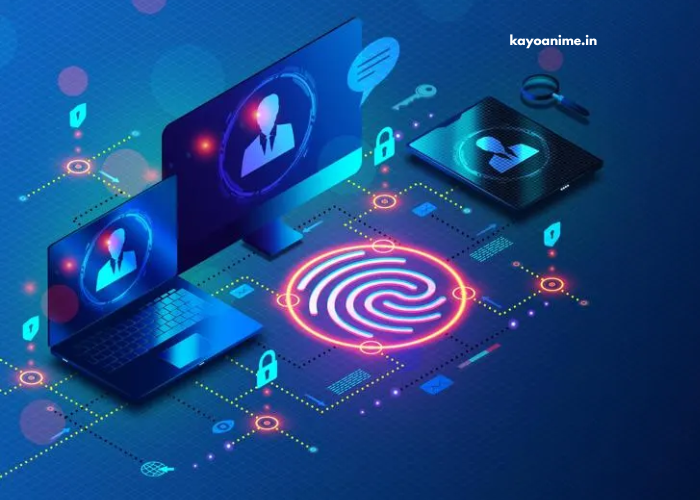In the modern digital world, protecting your privacy is more important than ever. With cybercrime on the rise and personal data being increasingly targeted by hackers, ensuring that your online presence is secure is essential. This article provides essential cybersecurity tips that will help you safeguard your privacy, avoid data breaches, and stay safe while navigating the internet.
Understanding the Importance of Cybersecurity
Before diving into specific tips, it’s crucial to understand why cybersecurity is vital for protecting your privacy. Every time you go online, you leave a digital footprint. From browsing websites to interacting on social media, your personal data is being generated and transmitted across the internet. Cybersecurity measures are the tools and practices that protect this data from unauthorized access, loss, or theft.
Why Privacy Protection Matters
Privacy protection helps to prevent identity theft, financial fraud, and other malicious activities. Without proper cybersecurity, you are vulnerable to cyber-attacks, which can compromise your personal information and cause long-term harm. Additionally, privacy breaches can result in severe reputational damage, especially if sensitive data is exposed to the wrong individuals or groups.
1. Use Strong, Unique Passwords
One of the most effective ways to secure your accounts and protect your privacy is by using strong, unique passwords for each of your online accounts.
Creating Strong Passwords
A strong password should be at least 12 characters long and include a combination of letters (both uppercase and lowercase), numbers, and special characters. Avoid using easily guessable information such as names, birthdates, or common words.
Password Managers: The Key to Convenience
Using a password manager is a great way to manage your passwords securely. These tools generate and store strong passwords for all your accounts, so you don’t need to remember them. Password managers also help you avoid reusing the same password across multiple accounts, which is a common security mistake.
2. Enable Two-Factor Authentication (2FA)
Two-factor authentication (2FA) adds an extra layer of security to your accounts. Instead of relying solely on your password, 2FA requires you to provide a second piece of information (often a code sent to your mobile phone or email) to verify your identity.
Why 2FA is Essential
Even if a hacker manages to obtain your password, they would still need access to your second factor (e.g., your phone) to log in. This greatly reduces the risk of unauthorized access to your accounts.
Popular 2FA Methods
Some of the most common 2FA methods include SMS or email codes, authentication apps (like Google Authenticator), or biometric verification (such as fingerprint scanning). Choose the method that works best for you, but ensure that it is enabled wherever possible.
3. Keep Software and Systems Up to Date
Outdated software is one of the most common vulnerabilities that cybercriminals exploit. Software updates often include patches for known security flaws, so it’s essential to keep your operating system, browsers, and applications up to date.
Automatic Updates: A Convenient Option
Most modern devices allow you to set software updates to install automatically. This is a convenient way to ensure that you never miss important security patches. However, if automatic updates are not available, make it a habit to check for updates regularly.
Update Your Antivirus Software
Your antivirus software should also be updated regularly to keep up with emerging threats. Some antivirus programs offer real-time protection, which can help detect and block malware before it infects your system.
4. Use Secure Wi-Fi Connections
Public Wi-Fi networks, such as those found in cafes, airports, and hotels, are often unsecured, making them easy targets for cybercriminals. When connected to public Wi-Fi, your data can be intercepted, potentially exposing sensitive information like passwords, credit card numbers, and personal messages.
Avoid Using Public Wi-Fi for Sensitive Transactions
Whenever possible, avoid using public Wi-Fi to access sensitive information such as online banking or shopping sites. If you absolutely need to use public Wi-Fi, consider using a Virtual Private Network (VPN) to encrypt your internet connection.
Secure Your Home Wi-Fi Network
It’s also important to secure your home Wi-Fi network. Change the default username and password of your router, and enable WPA3 encryption for the highest level of protection. Additionally, consider hiding your network name (SSID) so that it is not visible to nearby devices.
5. Beware of Phishing Attacks
Phishing attacks are a common method used by cybercriminals to trick individuals into revealing their personal information. These attacks usually come in the form of deceptive emails, phone calls, or text messages that appear to be from legitimate organizations.
How to Identify Phishing Scams
Phishing emails often contain red flags such as:
- Generic greetings like “Dear Customer.”
- Requests for sensitive information such as passwords or credit card numbers.
- Suspicious links that don’t match the official website domain.
Always double-check the source before clicking on any links or downloading attachments, especially if the message seems unusual or urgent.
Report Phishing Attempts
If you receive a phishing email, report it to the relevant authorities or the company being impersonated. Many organizations have dedicated email addresses for reporting phishing attempts.
6. Be Mindful of Your Social Media Presence
Social media platforms are treasure troves of personal information, which makes them prime targets for hackers. It’s important to be mindful of what you share online to protect your privacy.
Limit Personal Information Sharing
Avoid sharing sensitive personal information such as your full address, phone number, or financial details on social media. Even seemingly harmless information, like the name of your pet or your mother’s maiden name, can be used by cybercriminals to answer security questions and gain access to your accounts.
Adjust Privacy Settings
Most social media platforms allow you to adjust your privacy settings. Take the time to make sure that your posts are only visible to your friends and not the general public. You should also review your list of followers regularly and remove any connections that you don’t recognize or trust.
7. Regularly Monitor Your Credit and Bank Statements
One of the best ways to detect potential cybercrimes, such as identity theft or fraud, is by regularly reviewing your financial statements. Monitoring your credit and bank accounts can help you spot unauthorized activity early and take action before it causes significant damage.
Use Credit Monitoring Services
Many credit monitoring services offer alerts if there are any changes to your credit report or if suspicious activity is detected. Some services also offer identity theft protection, which can help you recover if your personal information is compromised.
Watch for Unusual Charges
Regularly check your bank and credit card statements for any charges you don’t recognize. If you notice anything suspicious, report it to your bank immediately.
8. Use Encryption to Protect Sensitive Data
Encryption is the process of converting information into a code to prevent unauthorized access. If you store sensitive data on your devices, such as passwords, financial records, or health information, it’s important to encrypt it.
Encrypt Your Devices
Many modern operating systems, including Windows, macOS, and mobile devices, offer built-in encryption features. Make sure that full-disk encryption is enabled on your devices to protect your data in case of theft or loss.
Encrypt Communications
If you need to send sensitive information over email or messaging platforms, consider using end-to-end encryption tools. These tools ensure that only the intended recipient can read your messages, even if they are intercepted during transmission.
9. Stay Informed About Cybersecurity Threats
The landscape of cybersecurity threats is constantly evolving, and staying informed is crucial to protecting your privacy. Cybercriminals are always coming up with new ways to breach security systems and exploit vulnerabilities.
Follow Trusted Cybersecurity Sources
Stay updated on the latest cybersecurity news and best practices by following reputable sources such as government agencies, cybersecurity blogs, and industry publications. By staying informed, you’ll be better equipped to recognize and protect yourself against new threats.
10. Educate Others About Cybersecurity
Cybersecurity is a shared responsibility. The more people who understand and implement cybersecurity practices, the safer the online community becomes. Share your knowledge with family, friends, and colleagues to help them protect their privacy as well.
Provide Training for Employees
If you run a business, it’s important to educate your employees about cybersecurity best practices. Employee negligence is a leading cause of data breaches, so make cybersecurity training a regular part of your employee development.
Conclusion
In today’s digital age, protecting your privacy requires vigilance and proactive measures. By following the cybersecurity tips outlined in this article, you can significantly reduce the risk of privacy breaches and safeguard your personal information. Remember that cybersecurity is not a one-time effort but an ongoing process. Regularly update your security practices, stay informed about new threats, and share your knowledge with others to help create a safer online environment for all.
By taking these simple yet powerful steps, you can protect your privacy and maintain your peace of mind in an increasingly interconnected world.





